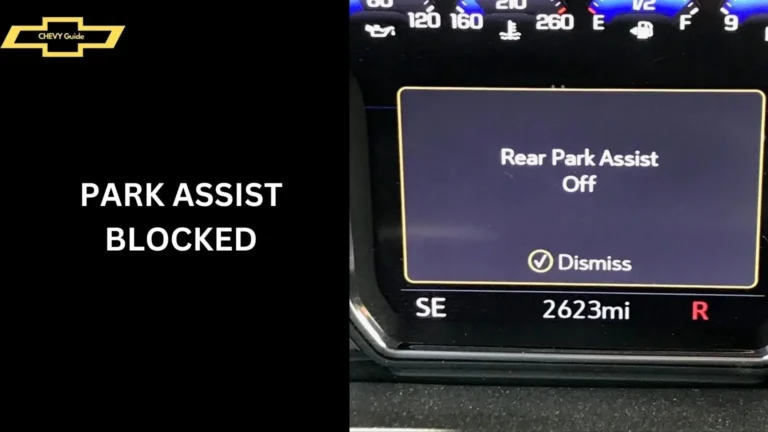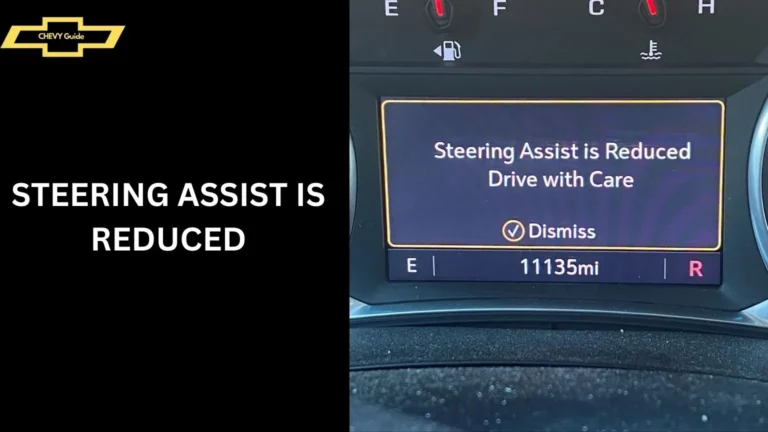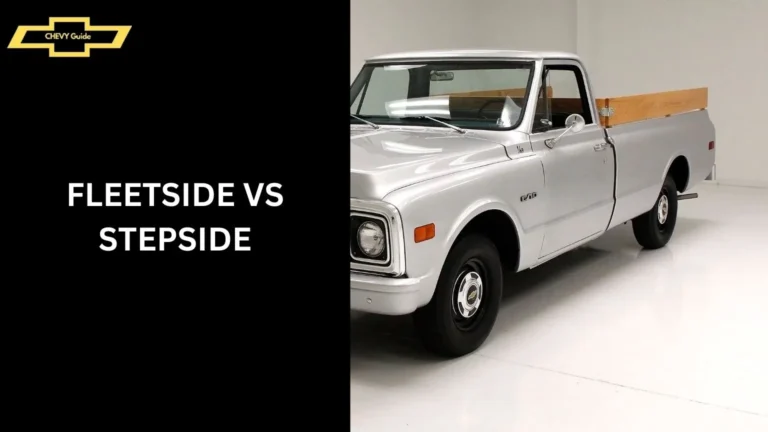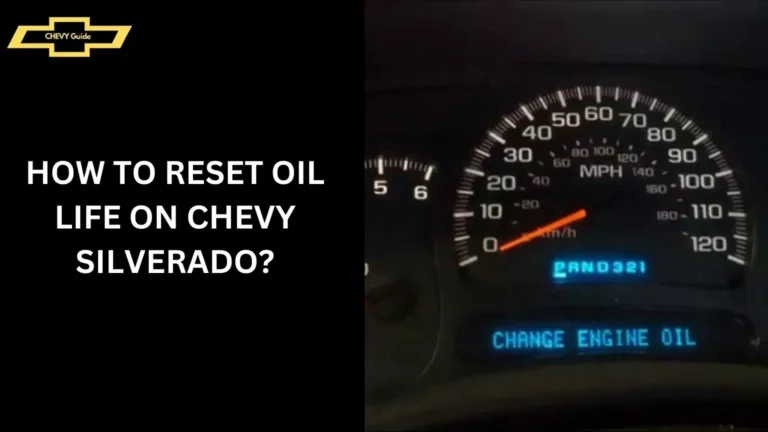Chevy 350 VS 305 Engine: Difference Guide of 2024
When it comes to classic American muscle and performance engines, the Chevy 350 and Chevy 305 are often compared.
Both have been popular in various Chevy vehicles over the years, but they cater to different needs and preferences.
In this article, we’ll dive into a detailed comparison of these two engines, covering their performance, fuel efficiency, applications, maintenance, costs, and more.
By the end, you should have a clear understanding of which engine might be the best fit for your needs.
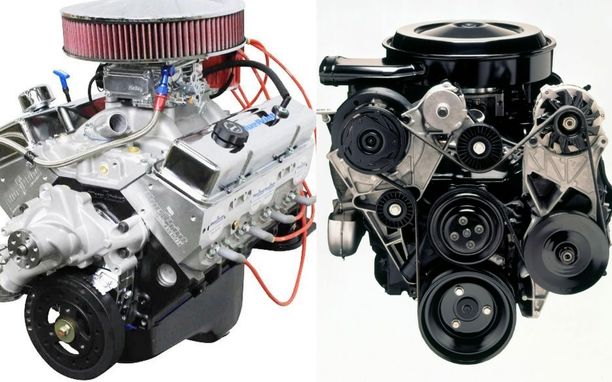
Understanding the Basics
When diving into the world of classic Chevy engines, two of the most frequently compared powerhouses are the Chevy 350 and Chevy 305. Both have earned their spots in automotive history, but they cater to different needs and preferences. Let’s break down what sets these two engines apart to give you a clearer picture of their unique characteristics.
What is the Chevy 350?
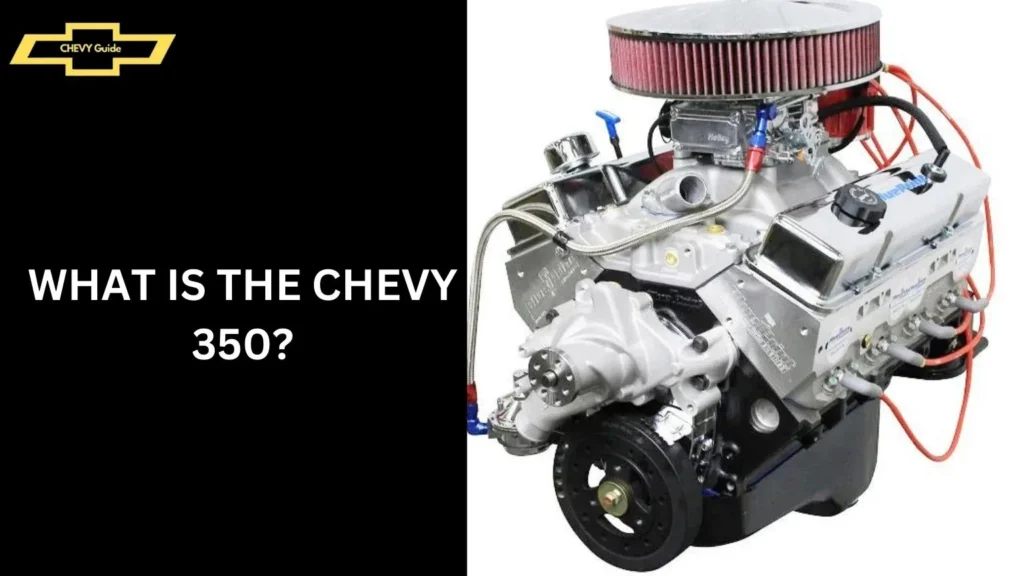
The Chevy 350 is a small-block V8 engine that has become a legend in the automotive world. Introduced in 1967, it’s known for its robust performance and versatility. With a displacement of 350 cubic inches (5.7 liters), this engine has been a staple in muscle cars, trucks, and even some boats.
What is the Chevy 305?
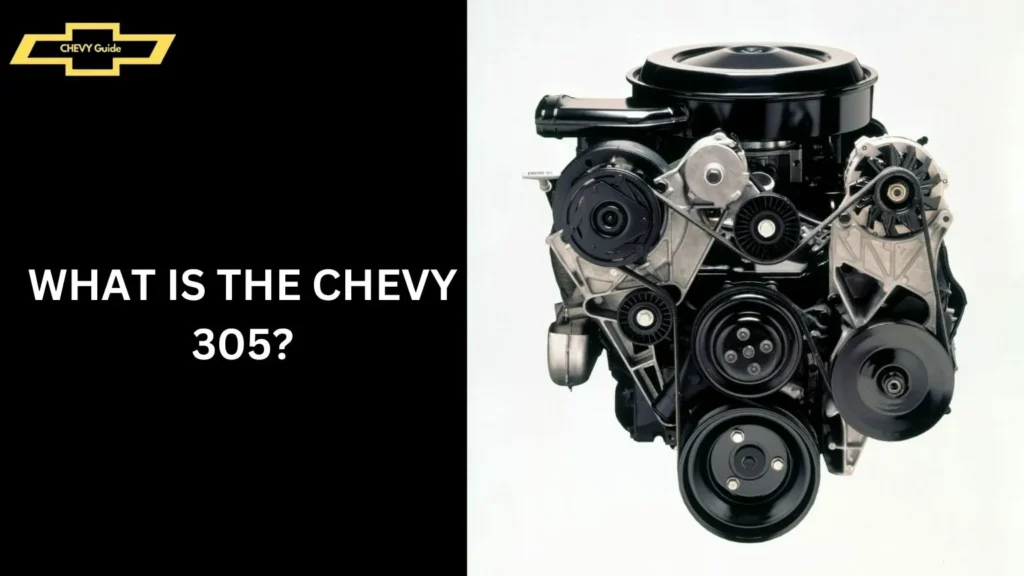
On the other hand, the Chevy 305, introduced in 1976, is another small-block V8 with a displacement of 305 cubic inches (5.0 liters). It was designed as a more fuel-efficient alternative to the larger 350 engine, often found in the same types of vehicles but with slightly less power and torque.
Performance Comparison
When evaluating the Chevy 350 and Chevy 305, performance is a critical factor. Both engines have their strengths, but they cater to different driving experiences and applications. Let’s delve into the specifics of how these engines compare in terms of power, torque, acceleration, and overall speed.
Power and Torque
When comparing the Chevy 350 and 305, power and torque are key factors. The Chevy 350 typically delivers between 255 and 370 horsepower, depending on the specific model and modifications. Its torque ranges from 280 to 410 lb-ft. This makes the 350 a powerhouse, ideal for high-performance applications.
In contrast, the Chevy 305 generally produces between 160 and 230 horsepower and 240 to 275 lb-ft of torque. While it’s less powerful than the 350, it’s still respectable and suitable for daily driving and light performance applications.
Acceleration and Speed
In terms of acceleration and top speed, the Chevy 350 holds a clear advantage. Its higher horsepower and torque translate to faster acceleration times and higher top speeds. This makes it a better choice for performance enthusiasts looking for a thrilling ride.
Fuel Efficiency
Fuel efficiency is an important consideration when choosing between the Chevy 350 and Chevy 305 engines. While performance often takes center stage in discussions about these engines, understanding their fuel consumption can help you make a more informed decision based on your driving needs and priorities.
Chevy 350 Fuel Consumption
The Chevy 350, with its larger displacement and higher performance, generally has lower fuel efficiency. On average, you can expect it to get around 12-16 miles per gallon (MPG). This can vary based on driving conditions and whether the engine is stocked or modified.
Chevy 305 Fuel Consumption
The Chevy 305, being a smaller engine with less emphasis on performance, tends to be more fuel-efficient. It typically achieves around 15-20 MPG. This makes it a more economical choice for everyday driving, especially if fuel economy is a priority.
Engine Applications and Usages In Chevy 350 VS 305
Understanding where each engine excels can help you determine which one is best suited for your needs. Both the Chevy 350 and Chevy 305 have found their place in various types of vehicles, but their applications and typical uses differ due to their unique characteristics.
Common Uses for the Chevy 350
The Chevy 350 engine is renowned for its versatility and robust performance, making it a popular choice for a wide range of applications. Here’s a look at where this engine shines:
- Muscle Cars: The Chevy 350 has been a staple in many classic muscle cars, such as the Chevrolet Camaro and Corvette. Its powerful output and tuning potential make it ideal for enthusiasts looking to restore or build high-performance vehicles.
- Sports Cars: With its impressive horsepower and torque, the 350 is frequently found in sports cars that prioritize speed and acceleration. It’s a go-to choice for drivers who want a thrilling driving experience.
- Trucks: The 350 is also used in trucks, particularly those built for towing and hauling. Its strong torque and power make it well-suited for heavy-duty applications, including work trucks and off-road vehicles.
- Performance Boats: In addition to cars and trucks, the Chevy 350 is used in some performance boats. Its reliable power output and durability make it a good choice for marine applications where performance is key.
Benefits for Applications:
- High Power Output: Ideal for performance-oriented vehicles and heavy-duty applications.
- Customization: Versatile platform for modifications and tuning.
- Strong Torque: Excellent for towing and hauling.
Common Uses for the Chevy 305
The Chevy 305, while less powerful than the 350, still holds its own in a variety of settings. Here’s where the 305 engine is commonly found:
- Mid-Sized Cars: The 305 was frequently used in mid-sized sedans and coupes. Its balance of performance and fuel efficiency made it suitable for everyday driving without excessive fuel consumption.
- Light Trucks: While not as powerful as the 350, the 305 is used in light trucks and SUVs where moderate power and good fuel economy are desired. It’s often found in vehicles used for commuting and light-duty work.
- Fleet Vehicles: The Chevy 305’s reliability and lower operating costs make it a popular choice for fleet vehicles. Businesses that require a dependable engine for everyday use often opt for the 305.
- High-Performance Models: In some cases, the 305 was used in high-performance models of the era, though it’s less common than the 350 for this purpose. It offers a good balance between power and efficiency for more modest performance needs.
Benefits for Applications:
- Fuel Efficiency: Better MPG than the 350, making it suitable for daily driving.
- Reliability: Known for its durability and long-lasting performance.
- Cost-Effective: Lower initial and operating costs compared to the 350.
Maintenance and Reliability
When choosing between the Chevy 350 and Chevy 305, understanding their maintenance requirements and reliability can be crucial for long-term ownership satisfaction. Each engine has its own set of characteristics that affect how often you need to service it and how dependable it is over time.
Chevy 350 Maintenance
Maintaining the Chevy 350 can be straightforward, but due to its higher performance, it may require more frequent attention to components like the cooling system and the fuel system. Regular maintenance and occasional performance tuning can help keep it running smoothly.
Chevy 305 Maintenance
The Chevy 305, with its focus on everyday reliability, is generally less demanding in terms of maintenance. It’s known for being durable and reliable, with fewer issues compared to the higher-strung 350. Regular oil changes and basic upkeep are usually sufficient.
Cost and Value
When evaluating the Chevy 350 and Chevy 305 engines, considering the cost and overall value of each engine is essential for making an informed decision. Both engines have different price points and offer varying levels of value depending on your needs and budget.
Chevy 350 Cost
The Chevy 350 is known for its powerful performance and versatility, but this comes with a higher cost. Here’s a breakdown of what you can expect:
- Initial Purchase Price: New or remanufactured Chevy 350 engines can range from $2,500 to $4,500, depending on the specific model, performance level, and whether it’s a crate engine or a rebuild. Performance-oriented versions and those with high horsepower can be even more expensive.
- Installation Costs: Installation costs for a Chevy 350 can vary based on your vehicle and the complexity of the job. Professional installation typically ranges from $1,000 to $2,500.
- Maintenance Costs: Due to its higher performance, maintenance costs for the Chevy 350 can be higher. Regular maintenance, including oil changes, cooling system upkeep, and potential performance part replacements, can add up.
Value Considerations:
- Performance: Offers high power and torque, making it ideal for performance builds and heavy-duty applications.
- Customization: Great potential for modifications and tuning.
- Resale Value: Classic and performance versions often retain higher resale value.
Chevy 305 Cost
The Chevy 305 is generally more affordable, both in terms of initial cost and ongoing maintenance. Here’s a look at the financial aspects:
- Initial Purchase Price: New or remanufactured Chevy 305 engines usually cost between $1,500 and $3,000. The price can vary based on whether it’s a crate engine or a rebuild, and any performance upgrades.
- Installation Costs: Installation costs for a Chevy 305 are similar to the 350, typically ranging from $1,000 to $2,500, depending on the vehicle and complexity.
- Maintenance Costs: Maintenance for the Chevy 305 tends to be lower due to its less demanding performance. Oil changes, cooling system maintenance, and general upkeep are typically less expensive.
Value Considerations:
- Fuel Efficiency: More economical in terms of fuel consumption compared to the 350.
- Reliability: Known for durability and long-term reliability.
- Cost-Effectiveness: Lower initial and operating costs make it a more budget-friendly choice.
Pros and Cons of Each Engine
To help you decide between the Chevy 350 and the Chevy 305, it’s important to weigh the pros and cons of each engine. Each engine has its own set of advantages and drawbacks that make it suitable for different applications and preferences.
Pros of the Chevy 350
- Higher power output
- Better acceleration and top speed
- Ideal for performance builds
Cons of the Chevy 350
- Lower fuel efficiency
- Higher maintenance and repair costs
- More demand on vehicle components
Pros of the Chevy 305
- Better fuel economy
- Lower initial and maintenance costs
- Reliable for everyday use
Cons of the Chevy 305
- Lower power and torque
- Not as suited for high-performance applications
- Less exciting for enthusiasts
People also ask
Can a 305 be bored to 350?
No, a 305 cannot be bored out to a 350. The 305 and 350 are different engine blocks with distinct cylinder bore sizes. While the 305 can be bored out for more displacement, it won’t reach the 350 cubic inch capacity. To achieve 350 cubic inches, you would need a 350 engine block or a larger bore and stroke combination specifically designed for that displacement.
How much horsepower does a Chevy 305 put out?
A Chevy 305 typically produces between 160 and 230 horsepower, depending on the model and year. Performance variations can occur based on factors like engine configuration and modifications.
Is the Chevy 305 a good engine?
Yes, the Chevy 305 is a good engine, especially for everyday driving and light-duty applications. It offers reliable performance, decent fuel efficiency, and durability, making it a solid choice for many drivers. However, it may not match the power of larger engines like the Chevy 350.
Will 305 intake fit 350?
Yes, a 305 intake manifold can fit a 350 engine, but it’s important to ensure compatibility with the specific engine versions and applications. Some modifications or adapter plates might be needed to ensure a proper fit and optimal performance.
Conclusion
In the battle of Chevy 350 vs 305, the choice largely depends on your needs and preferences. The Chevy 350 is a powerhouse with impressive performance, ideal for those seeking speed and power. However, it comes with higher costs and lower fuel efficiency. On the other hand, the Chevy 305 offers a more economical choice with good reliability and better fuel economy, making it a solid option for daily driving and less demanding applications.

My name is James Henry, and I’m thrilled to share my passion for Chevy vehicles with you. With over a decade of hands-on experience in car repair and a deep love for everything Chevy, I’ve dedicated this site to helping fellow enthusiasts and owners navigate the world of Chevrolet.

